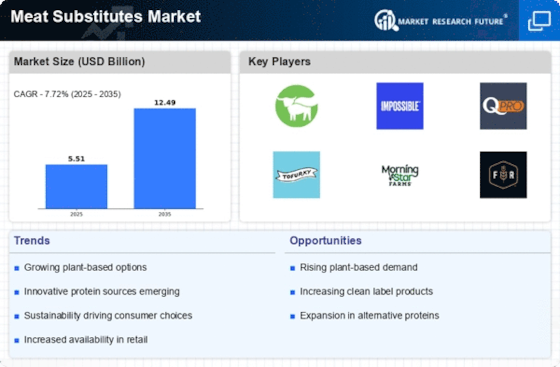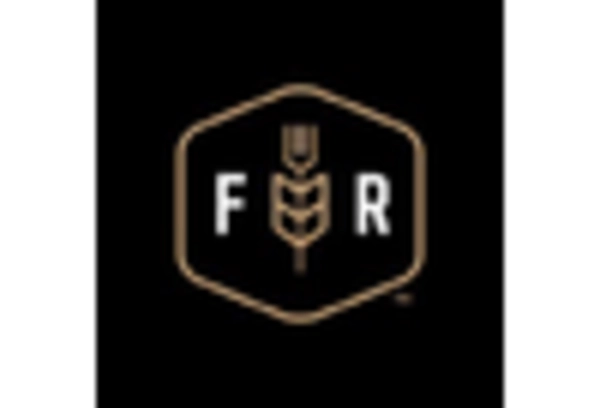Market Trends
Key Emerging Trends in the Meat Substitutes Market
Because of changes in customer habits, health concerns, and environmental problems, the meat replacement business has evolved. One big change is the rise of meat substitutes made from plants. There are more plant-based meat substitutes because they are healthy and more people are learning about how making meat hurts the earth. You can make these things from soy, pea protein, or mycoprotein. They taste and feel like meat, but they are better for you and the earth.
Flexitarianism, which says people should eat mostly plants but can eat meat sometimes, has changed the business of meat substitutes. To save money and health, many people are becoming flexitarians, which means they eat less meat. Because of this, businesses are making meat substitutes that taste good and are good for flexitarians and vegetarians.
Science and technology in modern cooking have made meat substitutes that are smart and taste good. They are tasting, feeling, and "bleeding" more and more like meat, even though they are not meat. Fans of meat who want new and different ways to fill their hunger are more open to meat substitutes thanks to new technologies.
A lot of people are also interested in protein sources that aren't plants. Firms are making meat substitutes from fungus, algae, and cells grown in a lab. The meat business is going in a new direction thanks to these new tools. They help get rid of the need to raise animals in ways that waste a lot of resources and offer alternate sources of nutrients that are better for the environment.
There has been a change in the business of meat substitutes because of the environmental movement around the world. It worries more and more people that the normal way of making pork cuts down trees, uses a lot of water, and gives off greenhouse gases. Companies that want to reduce the damage that making food does to the environment push for plant-based and alternative protein products that are better for the environment. Because of the environmental movement, animal-based foods are now seen as a good and moral choice.
Fears about the environment and health and fitness trends are having an effect on the meat substitutes business. People want healthy foods that are high in protein without giving up taste. Meat substitutes are good for people who care about their health because they have nutrients and less fat. There will be more pork items because more people are worried about their health.
Now that they are sold in more shops and work with more businesses, there are more meat substitutes to choose from. It is easier for people to use meat substitutes when more of them are available and used in everyday meals. This means that their market share grows. Plant-based foods are becoming a bigger part of the world's food business as the market moves toward more realistic and varied meat products that meet a wide range of nutritional needs and social issues.


















Leave a Comment